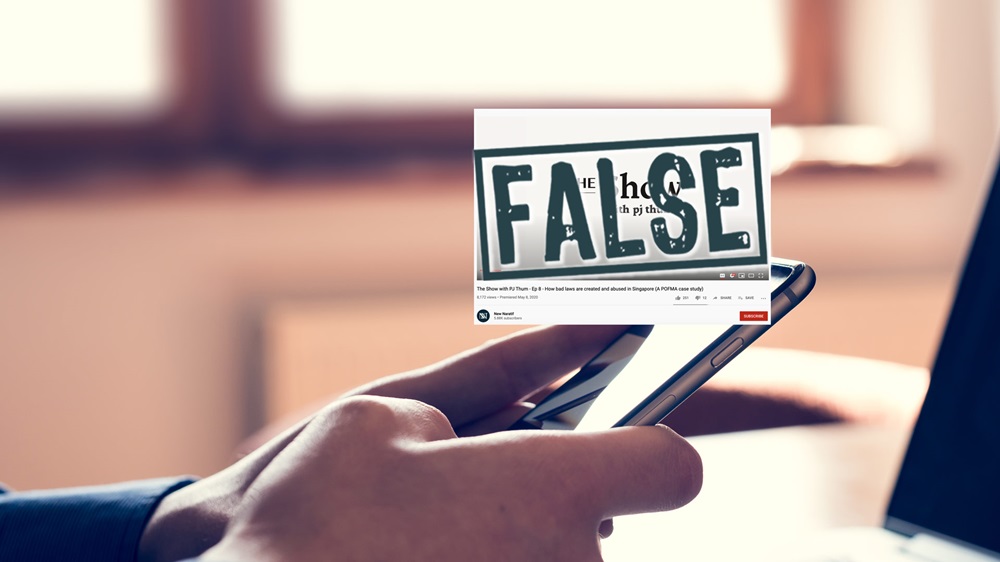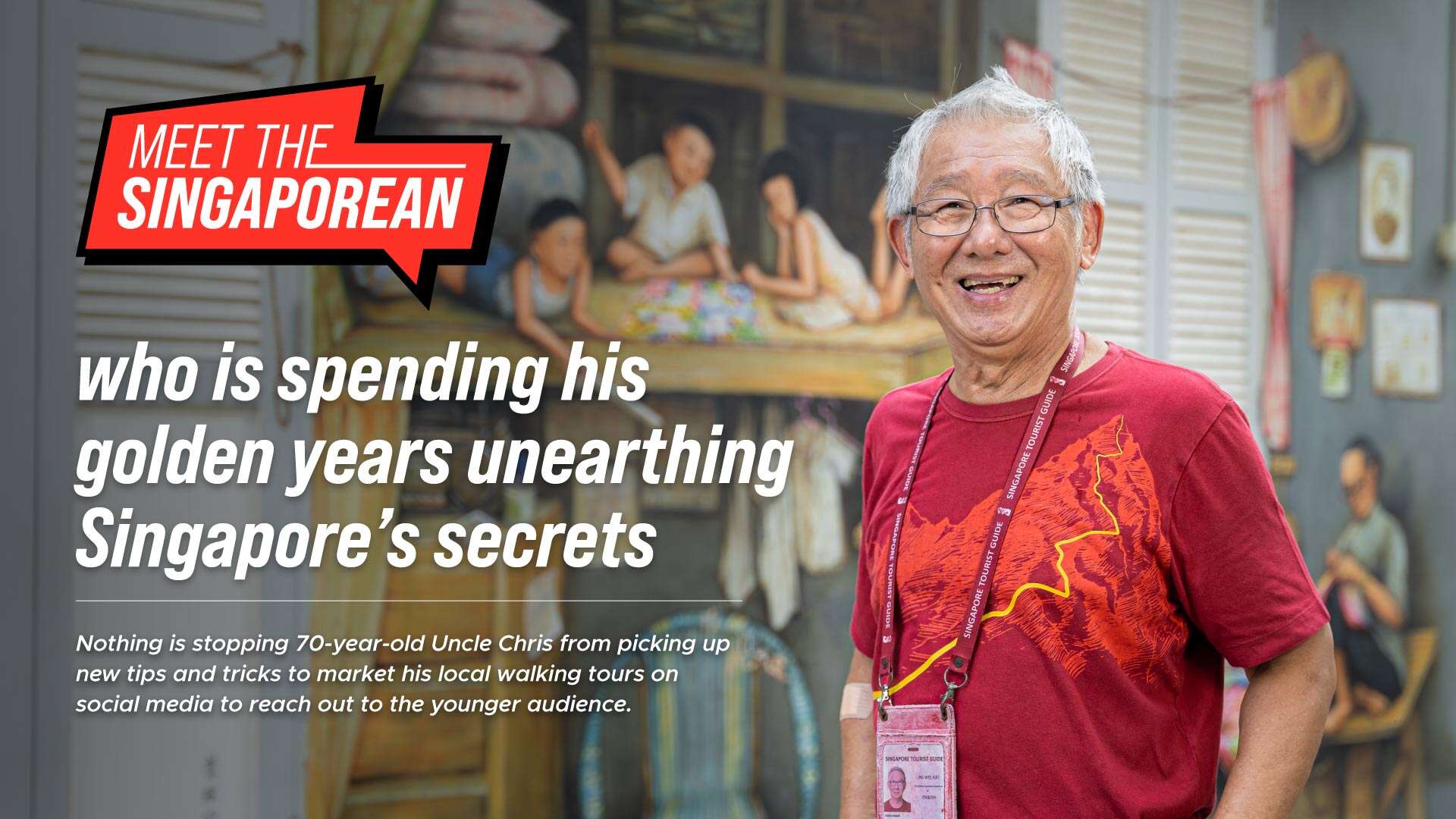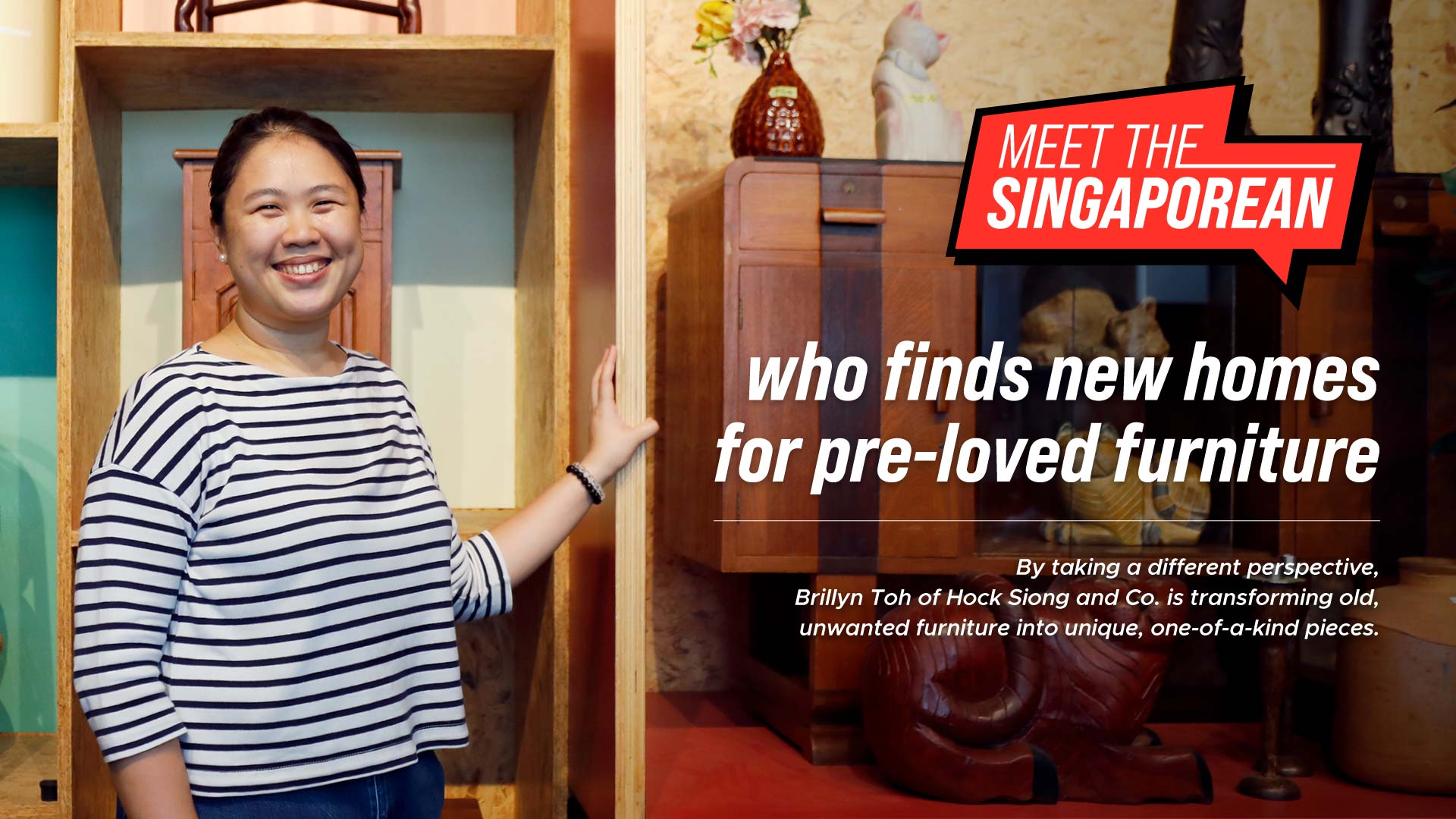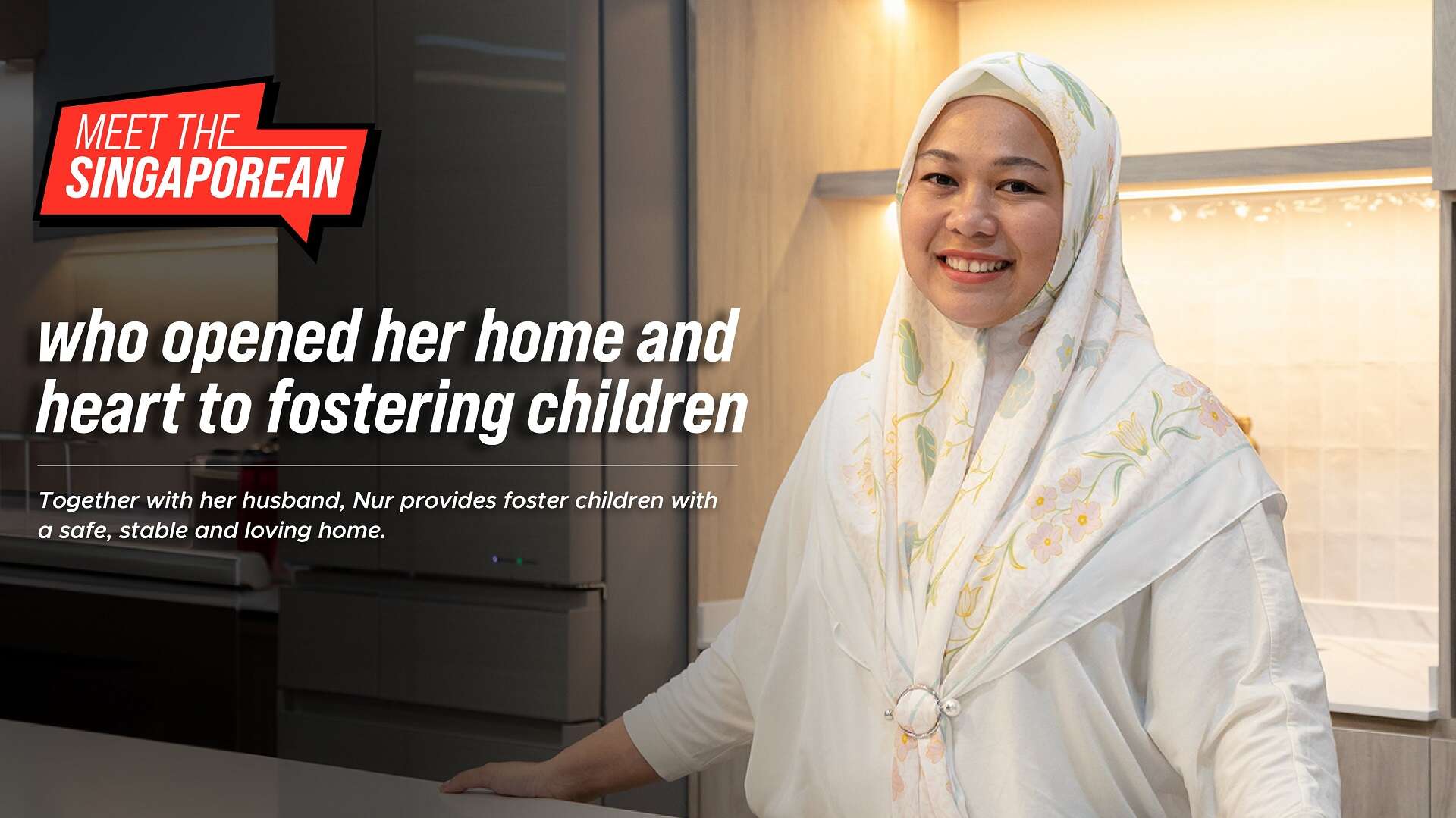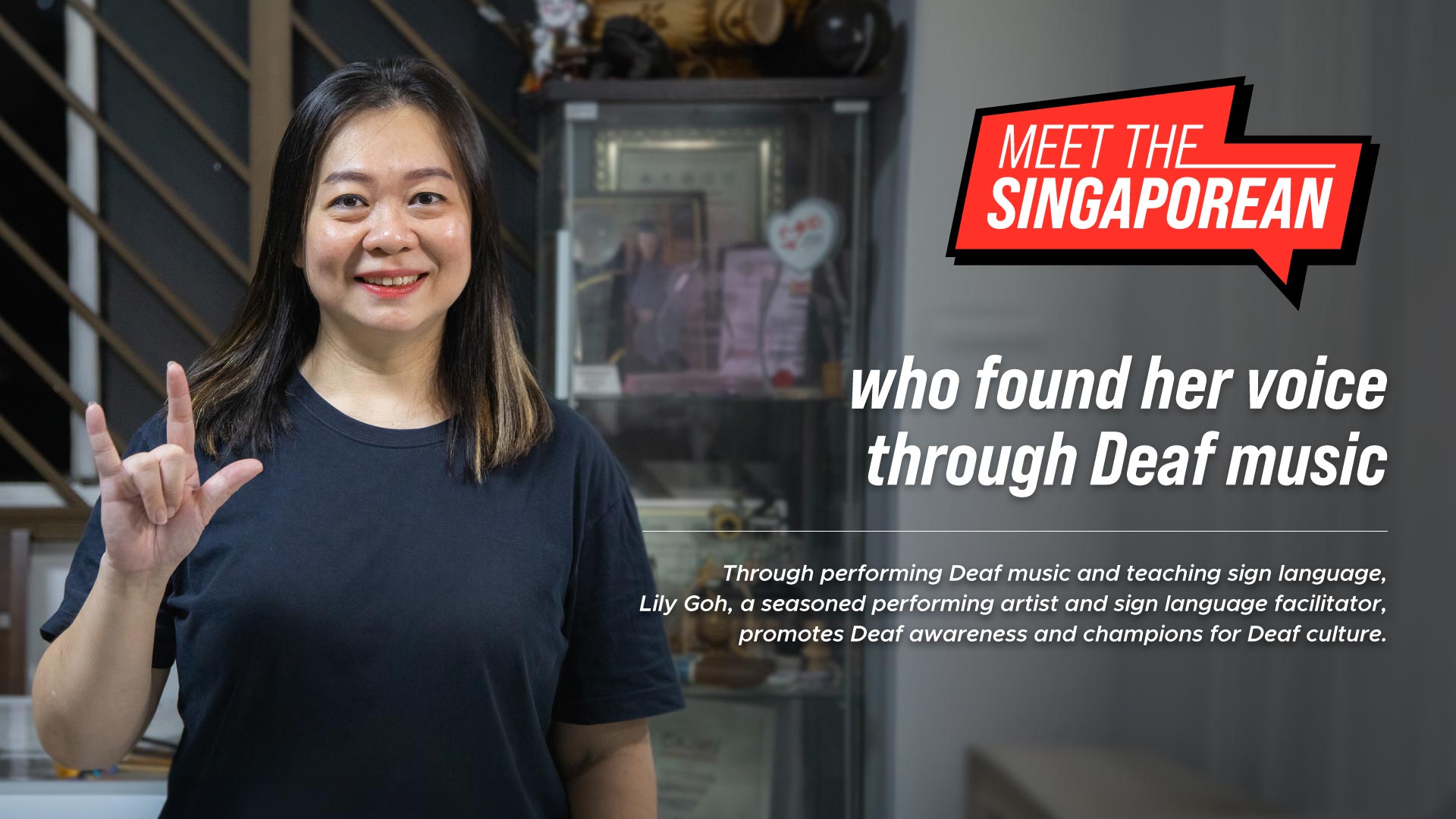
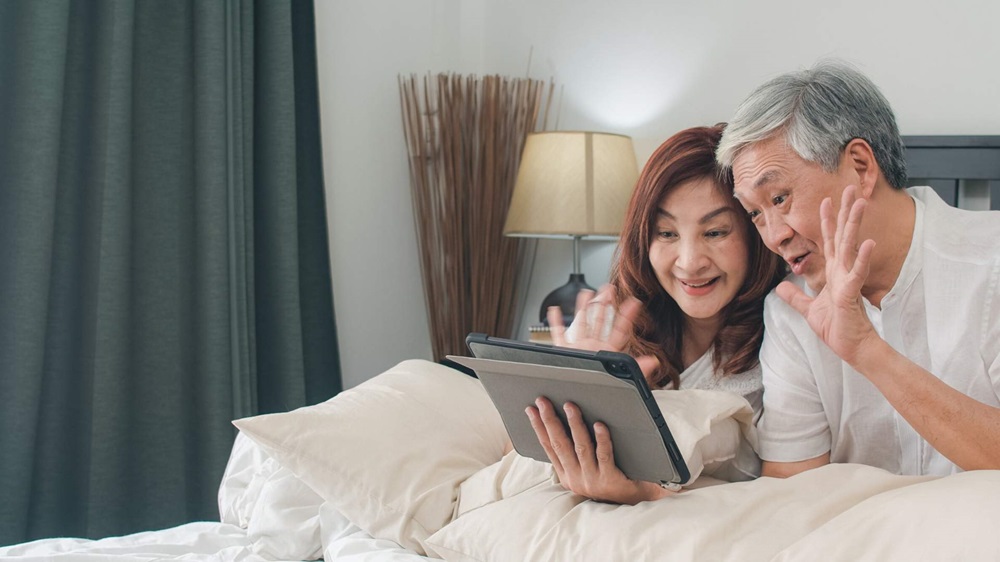
Seniors are the most vulnerable to COVID-19, and during this time, they’re advised to stay at home to reduce the risk of getting infected.
However, this means that many elderly would also have to make changes to their lifestyles. They may not be able to take their morning walks, go to the wet market as often as usual, and family gatherings would have to be put on hold. It can be difficult.
Seniors may feel restless, bored, have cabin fever, and miss their usual social interactions with friends and loved ones.
But here’s where intergenerational bonding can fill those gaps. Whether or not you live with your elderly relatives and friends, there are ways this circuit breaker period can be used as a wonderful time to connect with seniors.
Embracing technology for social interaction
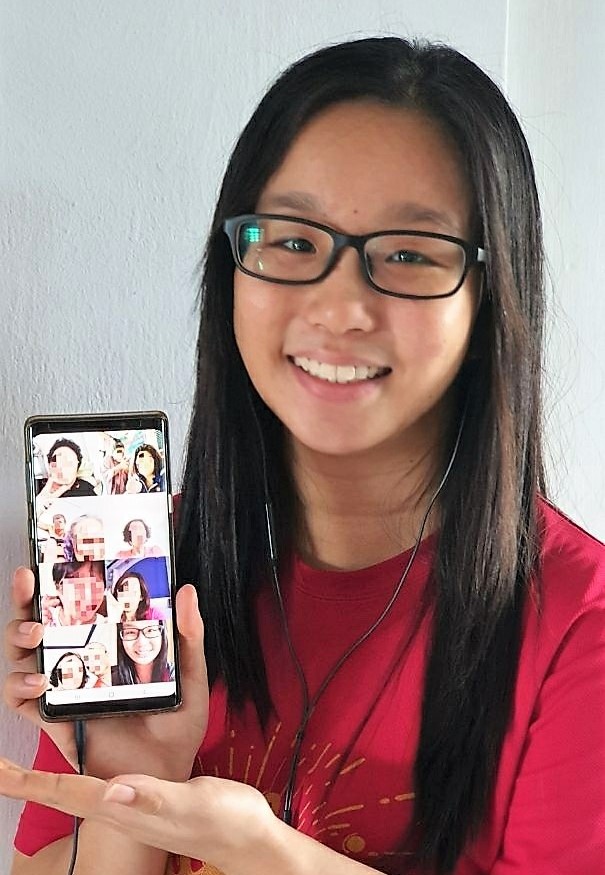
Felicia Tung, a freelancer who conducts fitness sessions at a Senior Activity Centre, set up a 8-person group WhatsApp video call for the seniors to keep in touch with their friends.
“During this time, many of us keep in touch through various online platforms. It occurred to me that some of the seniors at the Senior Activity Centre are not living with their family and grandchildren, and this made me to want to do a little something for them.
We already had a pre-existing WhatsApp group consisting of staff, instructors and regular participants from the Centre. I first tested out a 4-persons WhatsApp group video call with some of the more tech-savvy seniors. The response was positive, and some requested to include more friends in the call.
I decided to try the 8-persons WhatsApp call, but this required all 8 to have the latest WhatsApp version updated on their phone. However, many did not know how to do this, and some even thought it was a virus link! I had to use their commonly recognised mode of WhatsApp communication – audio recordings – to explain to them about the new application feature. I also attached a tutorial video for them to follow.
Due to their initial excitement, many spoke at once, which may work in real life, but not through video call where everyone can hear everything. Despite this, they quickly became comfortable with group video calls. Some even started having virtual open house tours, while others excitedly called their partners to appear in the video call. There were also some interesting responses:
‘Oh my I’m not wearing shirt now! Good thing you called me first. Let me go put on my shirt before the others join in. Wait for me!’
‘Aiyo why didn’t you tell us earlier! I could have put on some make-up and look good in front of the camera.’
Looking at the seniors’ excitement and smiles during the call, I’m happy to know that they have been well and that I have managed to do a little something for them. I feel that while many seniors are not technologically savvy, they still want to be able to be involved and stay connected with one another, and technology can definitely help with that. It can help decrease loneliness among seniors and promote better emotional and mental health during this circuit breaker.”
Facetime with Nana
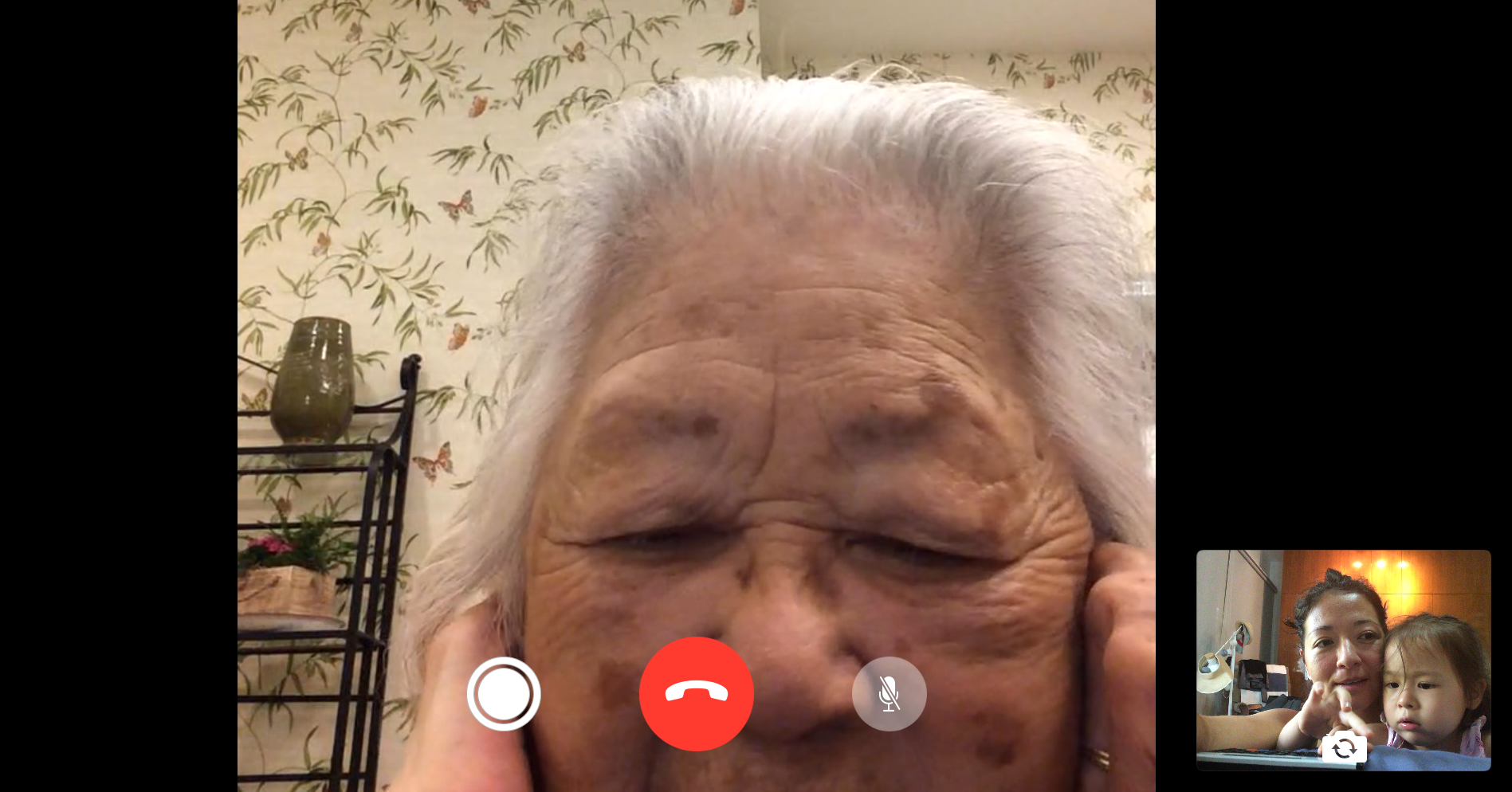
Kathryn Saito, a Singapore Permanent Resident here, has weekly Facetime sessions with Nana, her 99-year-old grandma, who lives in an assisted living home in Canada.
“Nana is a very active 99-year-old. We would always speak to her once a week via telephone, but we never had the opportunity to see her. My daughter who is now 3 last saw her great grandmother when she was 6 months old and my son who will be 1 this month has yet to meet her in person.
Being confined to her room has been tough on Nana as she is such an active and busy person partaking in activities at the residence. As such, we wanted an opportunity to interact with Nana in person rather than via telephone. With the support of the staff at the home, we have been provided a chance to FaceTime with Nana once a week.
This call is one of the best things we have done as a family. My daughter wakes up Thursday mornings excited, and we prepare our breakfast and set up the iPad on the table so we can all see her.
Nana brings down her evening tea and biscuit and it is like we are sharing a meal together. She gets to see both the children. Sometimes they have lots to say and are all smiles and other days they would rather play. But in lots of ways this is the reality of daily family life and Nana gets to be part of it for that short time.
I think at the beginning being on screen was tough for her and she seemed a bit frustrated with where to look and how to hear properly. But over time she has become a pro at this. The other day she even brought down her "mindful colouring book" that she has been working on. She wanted to show her great grand-daughter what she had been colouring.
Interestingly, I am not sure whether we ever would have initiated these weekly Facetime calls if we had not been confronted with the challenges that the virus presented. Although we always made time for our weekly call with Nana, this has elevated that interaction to a whole new level and for that we are so grateful. No matter what happens in our future, what this virus has taught our family is that there is always time in our busy lives for others. Even when restrictions ease, we will be prioritising our weekly Facetime calls with our Nana.”
Bonding over the love for cooking
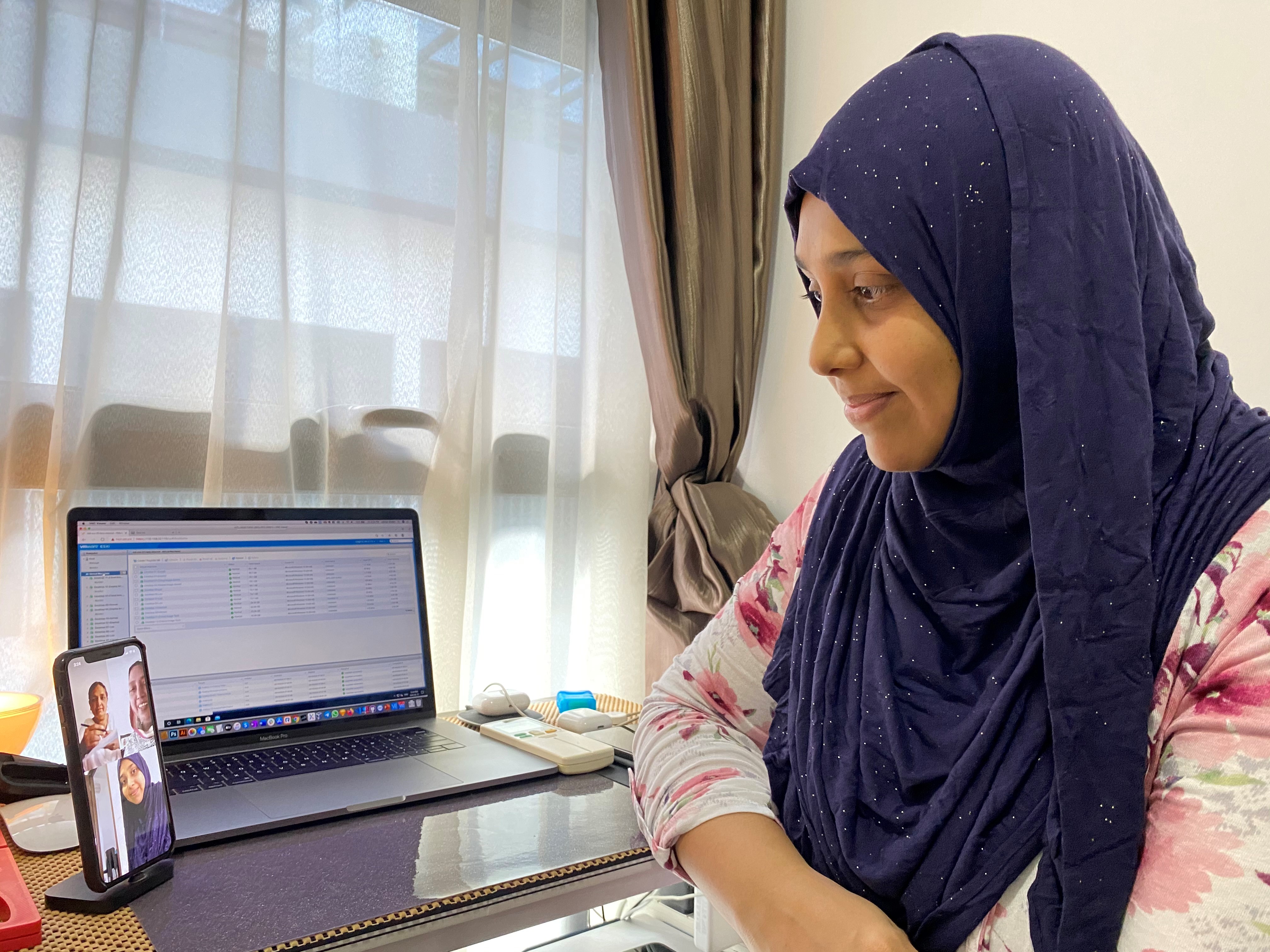
Mrs. Ruhi Usman Shaikh teaches her mum and mum-in-law how to cook with new recipes over video calls.
“This is something I initiated as it is Ramadan and we are all apart from one another. Food delivery options are limited, and for senior citizens, it’s better to avoid going out.
Previously, we used to communicate on a daily basis, be it a short 5-minute call or so. But this circuit breaker period has given us more time together, and instead of voice calls we do video calls daily our oloved ones, with allotted time slots for us and the kids. This way, work isn’t disrupted, and we make the most out of the current situation.
The older folk cook only regular stuff that they know but they don’t really experiment. In this period, I kept informing my mother and my mother-in-law of things about what I made for breaking fast (Iftar) and insisted that they try some simple recipes which will keep them busy and also make for some change in the regular menu. Some of the foods I taught them include Murg Malai Tikka (Boneless Chicken chunks with creamy marinade) and falafels (fried ground chickpea balls).
They took to it quite well as the recipes are very simple and pretty close to what we usually cook in our daily meals. They all enjoyed this food over post-fasting and it was a pleasant change. They felt nostalgic as we used to enjoy these recipes as a family together. I also shared with them how to store the food, so that they can use it next time, reducing their work for coming days.”
Sharing about good personal hygiene
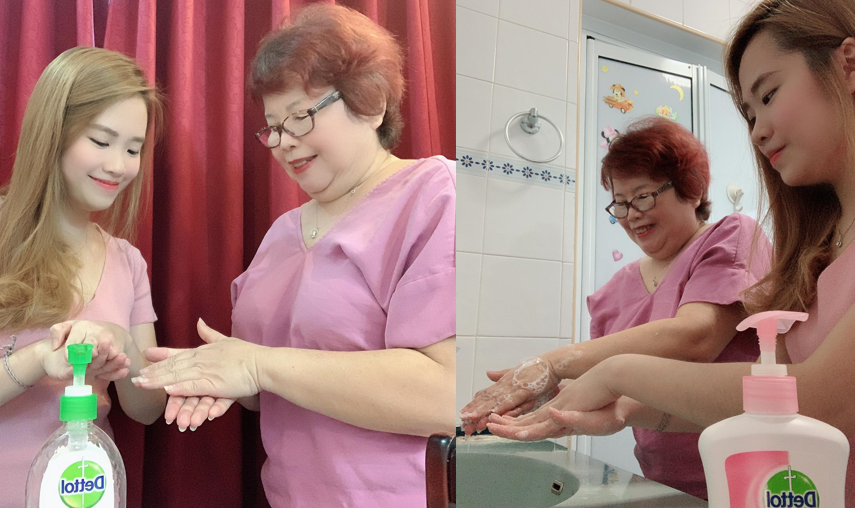
Agnes Poh, a certified nutritionist, strives to educate her parents about the importance of good personal hygiene and food preparation.
“I taught my family members, including my parents, about how to practice good and proper personal hygiene. Prior the Covid-19 situation, my parents were not aware of a lot of these things, like using hand sanitisers and proper hand washing techniques (eg. the 8 steps of washing your hands and to wash for at least 30 seconds with soap and water).
Initially, they felt uneasy, as they never had the habit of using sanitisers when they were out (and if clean water and soap were not available). They also felt that was very troublesome to keep washing and sanitising their hands. I would need to supervise them especially when they came back from the supermarket, and ensure they washed their hands properly. I want to educate my parents about hygiene so they are safe and know how to protect themselves.
I realise that we need to cherish our loved ones, and with health the most important in life, this includes learning how to protect the elderly from infectious diseases.”
Gaming with grandma
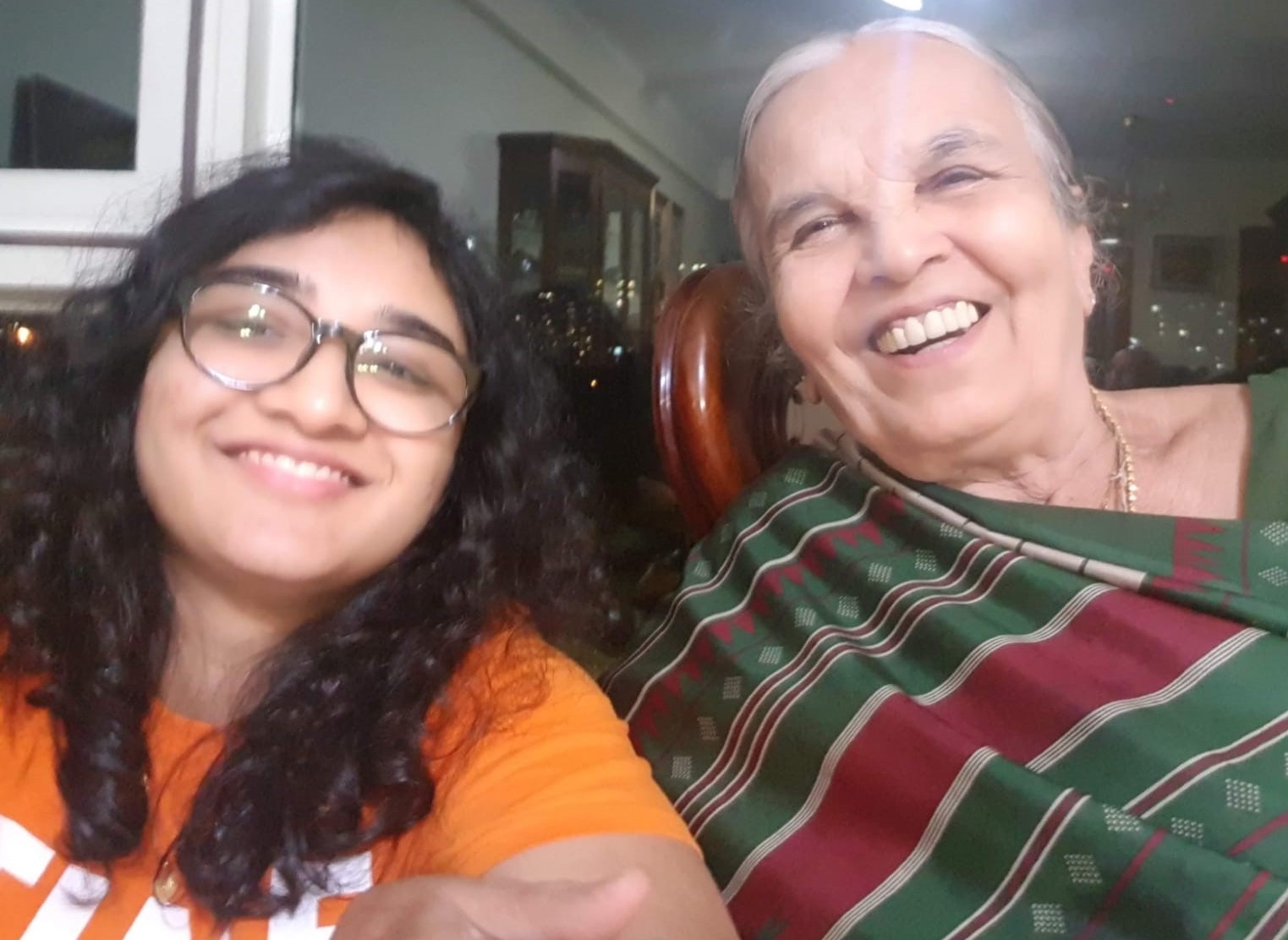
Shreya Bhatia taught her 80-year-old grandma who lives in India to download Ludo King. Now, they regularly game together, along with other family members spread across four countries.
“My grandma lives in India and over the December holidays, I gave her my old Samsung S8 to use. I had to teach her how to use it because she didn't know anything beyond dialing numbers to make phone calls. She and her friend are now stuck in self-quarantine at home in India, away from their families.
I felt sad that she hadn't left her house for 60 days so I thought of cheering her up. This prompted a 2-hr lesson on how to download games after which only she downloaded the first game app ever, “Ludo King”.
She got so exhausted downloading her first game because she was anxious about following my instructions, navigating back and forth between Whatsapp video call and the Play Store. But this encounter has increased her confidence in using her phone for purposes other than just calling people.
She told me earlier that she thought she would break her phone and was scared that she couldn’t get it repaired due to not being able to leave her house. If anything, her fear has mitigated and believes she can fix any problem with my guidance. In the future, I hope she isn't as afraid of her phone and doesn't see it as something that can get the better of her!
I am very close to my grandma and have taught her many other things on her phone. Surprisingly, she was quick to learn how to take selfies and post them as her Whatsapp display pic. Then without having to instruct her, she was able to download Zoom. Now we play Housie/ Bingo/Tambola on Zoom with all our family members spread across four countries using Zoom conference.
TV for Grandpa
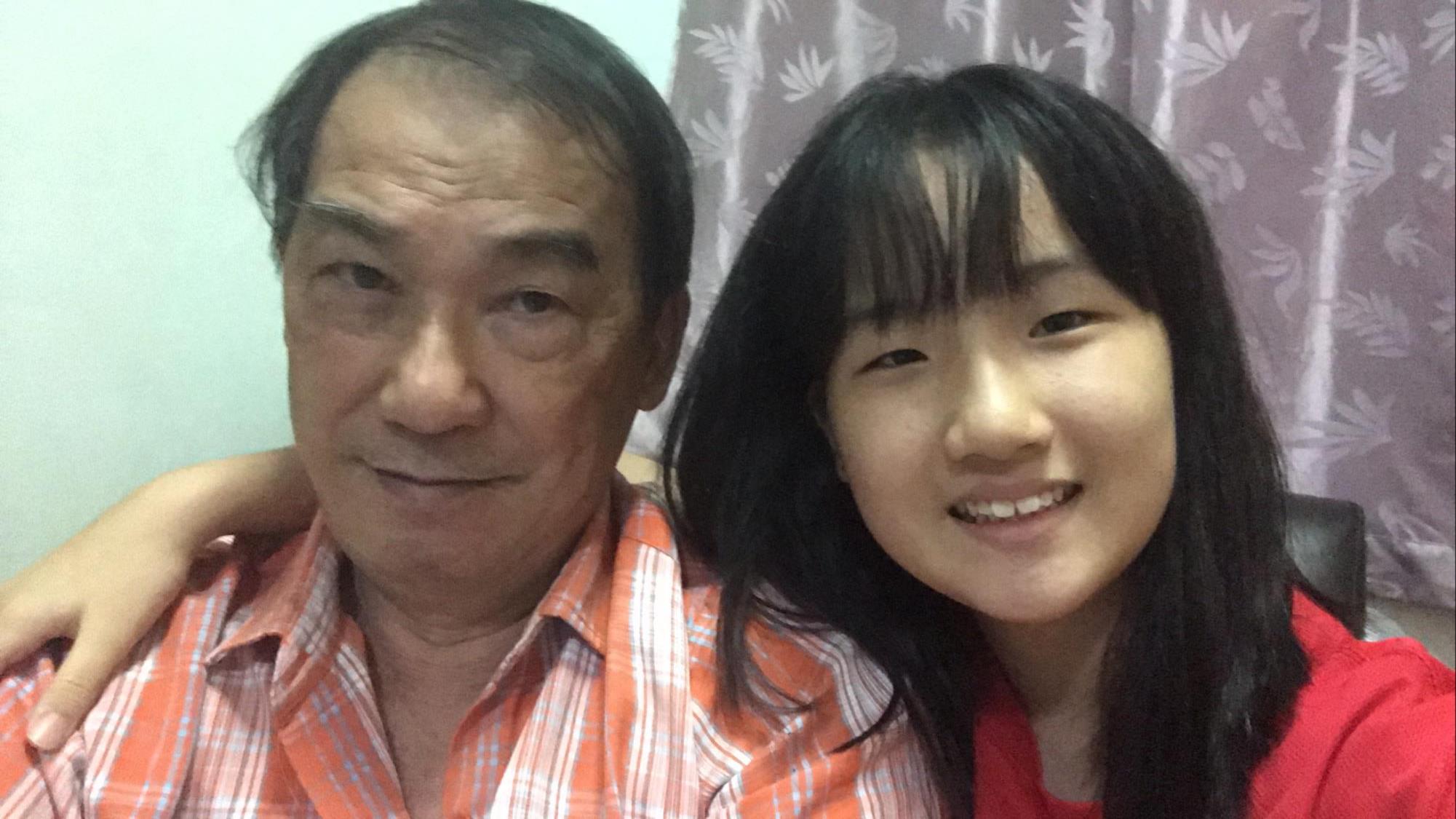
Ally Lee, 12, taught her 71-year-old Grandpa to connect his mobile phone to the TV, so he can watch his TV dramas more comfortably.
“My grandpa and I have always been very close. He has been with me since I was born and he is like my second father. He is from the older generation so he does not how to speak English.
Grandpa is a very big fan of TV dramas, which he watches on his phone, but his phone is quite small. I thought maybe teaching him how to connect his phone to the TV would be a good idea. It would also help his eyesight as he would not need to squint his eyes so much. My grandpa is very satisfied now as it’s a lot easier now to watch his shows and he does not need to his wear glasses all the time. The volume is louder too.
It was not easy to teach him as I had to explain everything in Chinese. I needed to break down the instructions and show him the steps one by one on how to do it. I will not mind teaching him again as he is always there when I need help. I would love to teach him more about how to use his phone, maybe teach him to watch his favourite shows on YouTube on television.”
We use cookies to tailor your browsing experience. By continuing to use Gov.sg, you accept our use of cookies. To decline cookies at any time, you may adjust your browser settings. Find out more about your cookie preferences here .









